The objects that tell us stories

Hello!
Happy Thursday: I hope that you’re having a good week. This week has been a busy one on this end: our daycare is closed, so we’re dealing not only with a school-aged kid doing school work, but a tiny, feral monster that would otherwise be rehomed for the day with a patient specialist. Iris would like you to know that we are the literal worst.
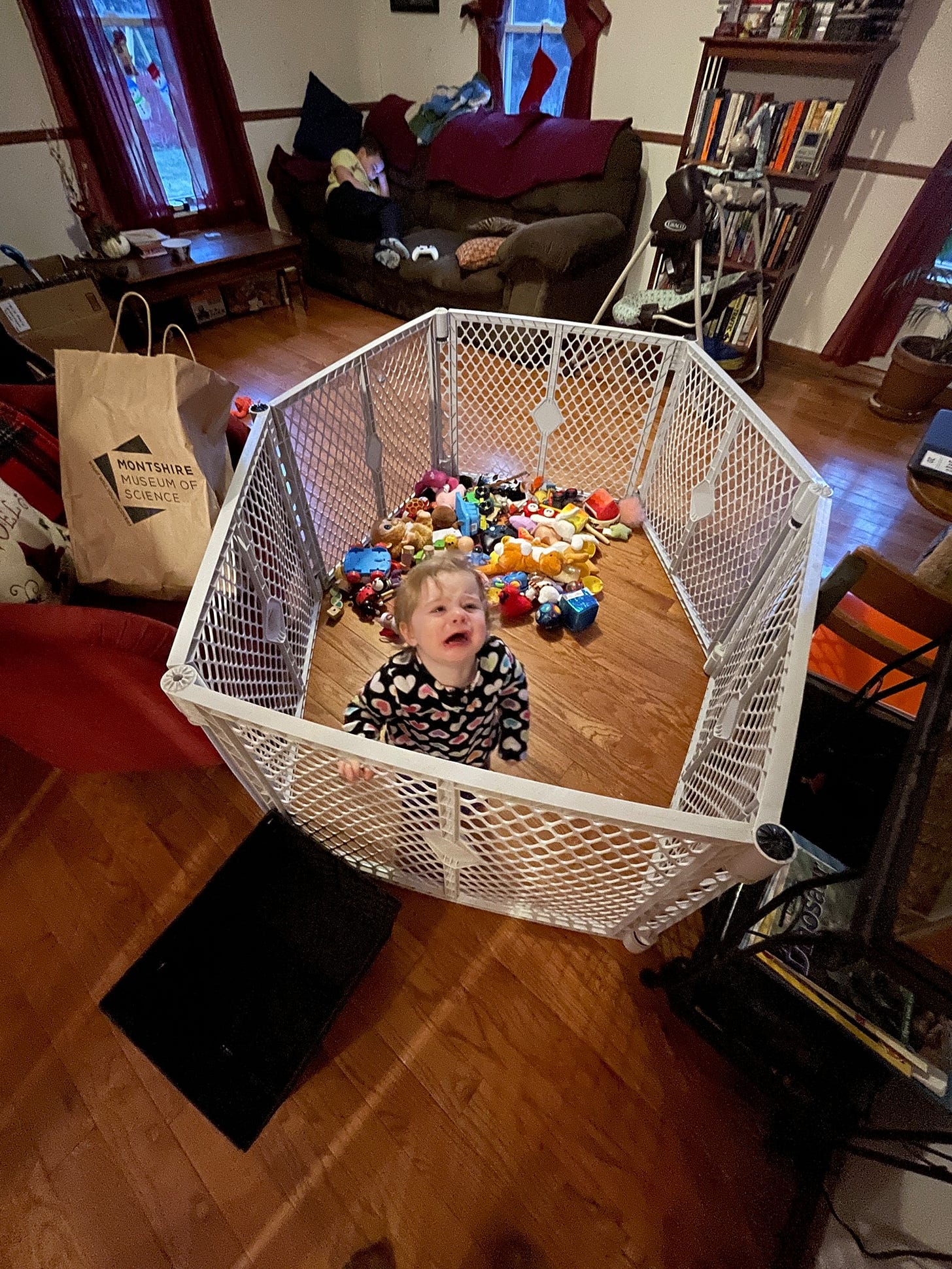
If you’re a parent, you know.
This week has been one for stories, and I had three things come up that feel like they’re dealing with the same thing in a couple of similar ways: reading.
Facts and Feelings with Ted Chiang
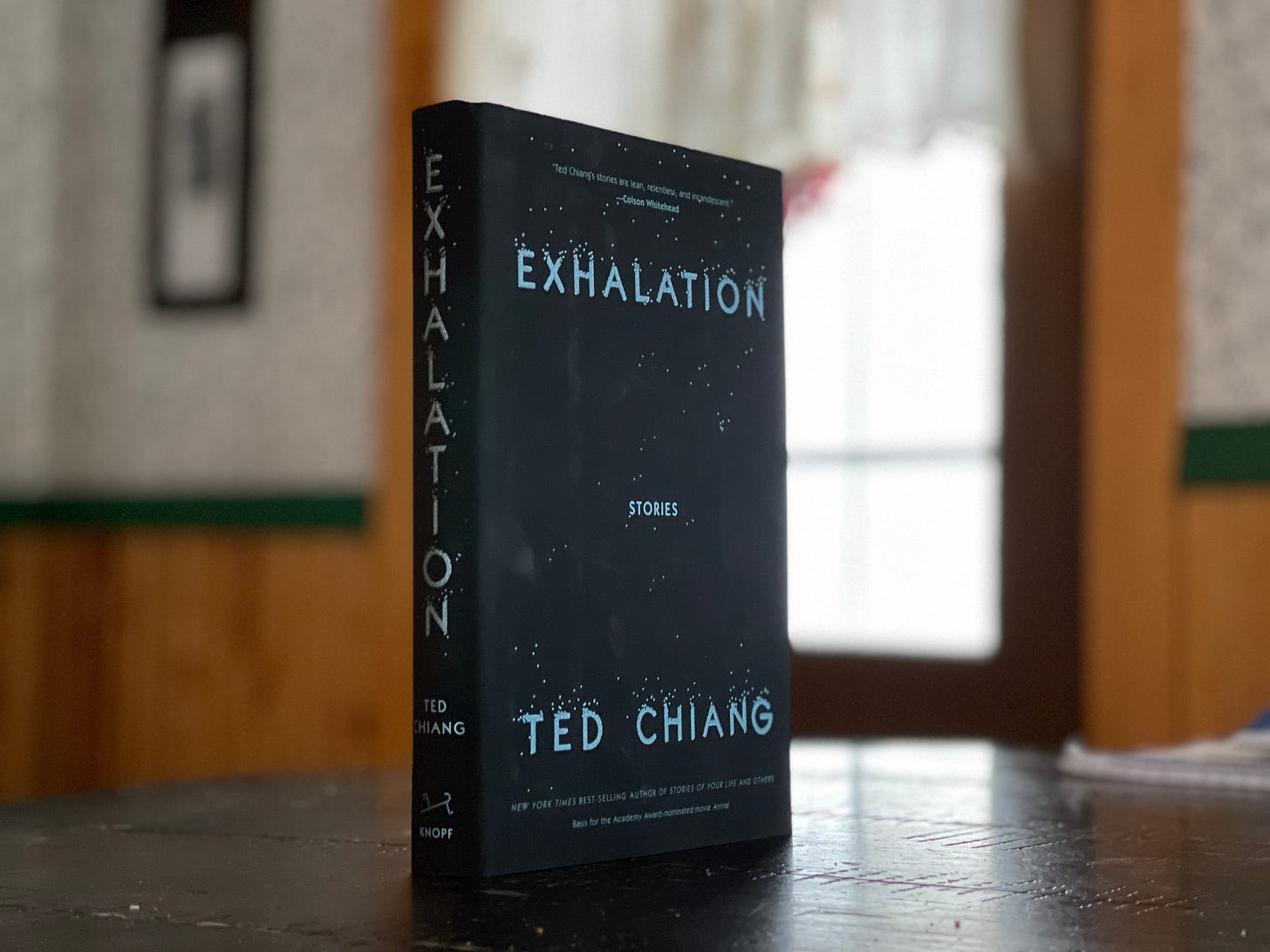
One of my favorite authors is Ted Chiang. I haven’t read all of his stuff, but his stories are ones that I savor when I come across them or when the mood strikes. Earlier this week, word broke that The Flight Attendant creator Steve Yockey was developing ‘The Truth of Fact, The Truth of Feeling’ for television. The story was originally published on Subterranean Press’s website, but it’s now in his collection Exhalation (archived version here — but consider picking up the book.)
The story plays out like a nonfiction piece in two tracks. In the first, a journalist is writing about a new technology that captures your memories and video, allowing you to access them at will, to settle arguments or relive your past, while the other follows a missionary who settles at a Tiv village in Africa and introduces them to writing.
What plays out is a really beautiful meditation on how we transmit information to one another. In the present, we see the journalist struggle with how we remember our past and how this new technology platform impacts our relationships. With the Tiv, the characters have to figure out this sea change in information delivery, moving from an oral tradition to a written one. In both, the act of jotting down information changes the meaning and how it’s remembered, and Chiang pulls out two halves of the same coin: the hard facts of what happened, verses what’s right.
It’s a fascinating story, and it deals with an interesting element of storytelling. I’ve been thinking lately about how the act of writing — or even speaking — can really cement an idea and anchor it in a type of reality. Writing something down takes a tangible thought in stark black and white, and it’s harder to change that reality once you’ve done that.
The Book Makers
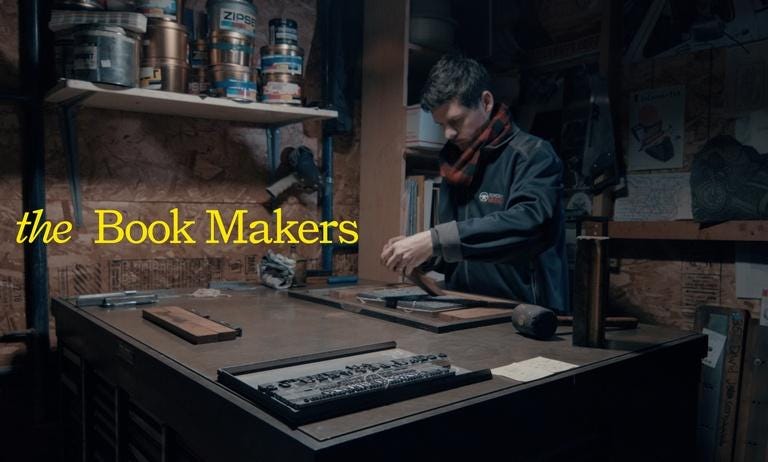
There’s a PBS documentary that I watched a couple of weeks ago that I’d recommend checking out: The Book Makers. It’s a short watch, just an hour, and it follows a handful of artisan book makers. Their work is really incredible: it seems like it’s a bit of both a dying art — a trade that’s passed down from master to apprentice — and a field that’s exploding with new potential and innovation.
But this short doc is more than just that: it’s about the power that books hold over us, and how they transmit information between us
Historian Abby Smith Rumsey has a great observation at the top of the documentary:
“There’s something magical about this strange disjunction between humans who make these material objects with care, with passion with love, and the way that human beings can impregnate them with these very immaterial aspects of themselves, their thoughts, their ideas, their emotions, how does a physical object actually capture that for us?”
It’s a bit like that meme that’s been going around: “Reading is just staring at a piece of a dead tree and hallucinating.”
Rumsey also made a really intriguing observation in the documentary. We don’t think of it as such, but books, text, and type, she notes, is an incredibly refined piece of technology. We’ve spent hundreds of years perfecting readability, to transmit this information from one person to another throughout time. Write a book and you spread those ideas to other people, not just contemporaneously, but as time goes on as well — provided that you’ve published your story in a way that is durable.
Books are pretty durable objects, especially ones produced before an era of mass production and consumption. Your paperback books are on fire — the acid in their pages disintegrating pulp magazines and paperbacks. But higher-end books will last centuries in the right conditions — far outlasting computer hard drives. The interface is easy and intuitive to use.
The main focus of the documentary is the incredible skill that it takes for a small group of people to make their own books, and those who are innovating in that space. It’s well worth a watch.
Disney verses Alan Dean Foster
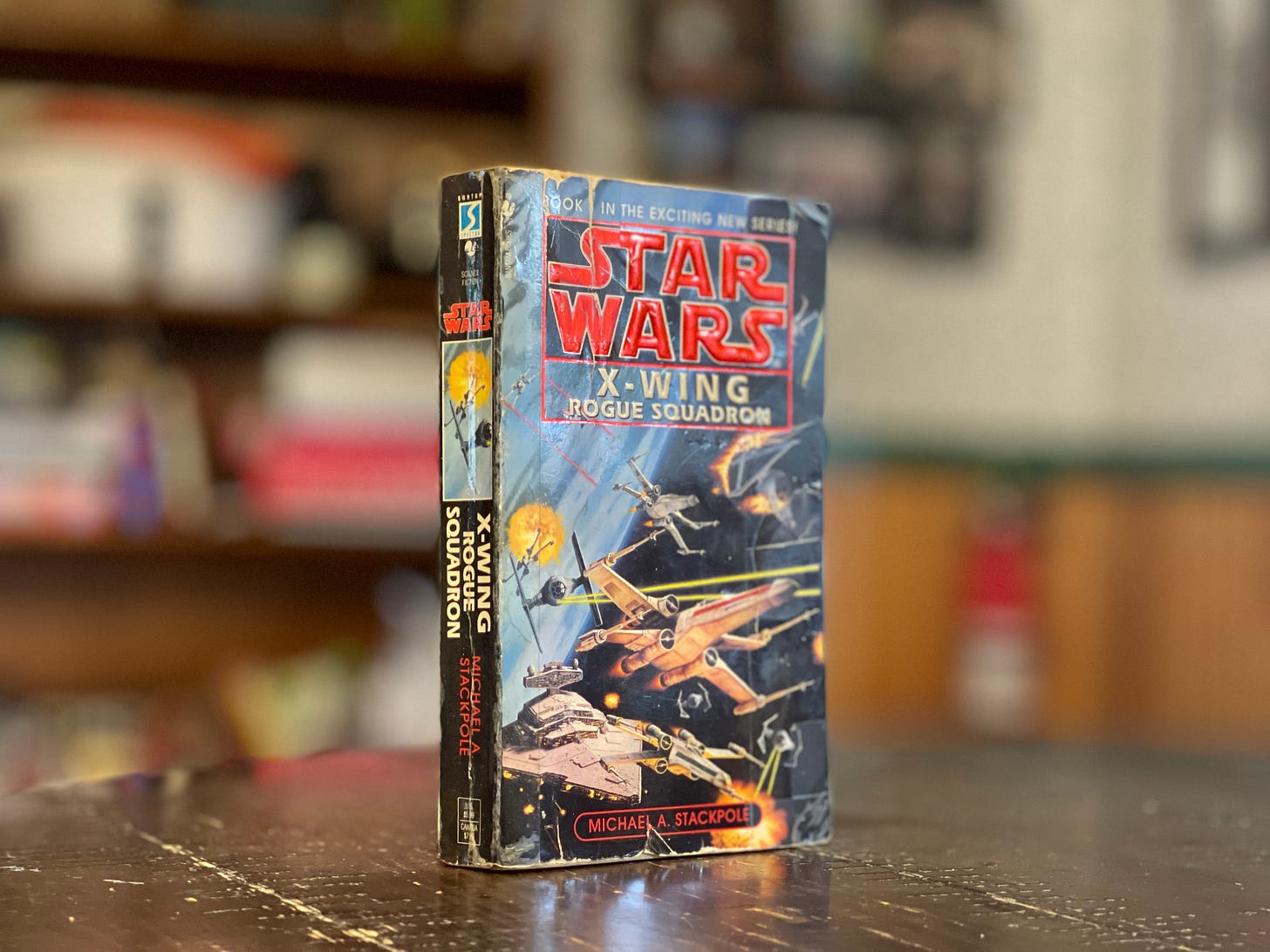
Speaking of the hard truth verses facts: in case you missed it yesterday, I had a big feature go up on Polygon about Alan Dean Foster, SFWA, and Disney. Foster and SFWA went public last month with a problem: Foster’s royalties had dried up for some of his work on the Aliens and Star War franchises. It’s a deceptively complicated story involving contract law and copyright, and I think my story does a good job highlighting the issues and arguments from both SFWA and Disney, and what some of the bigger implications might be.
You can read it here.
Currently Reading
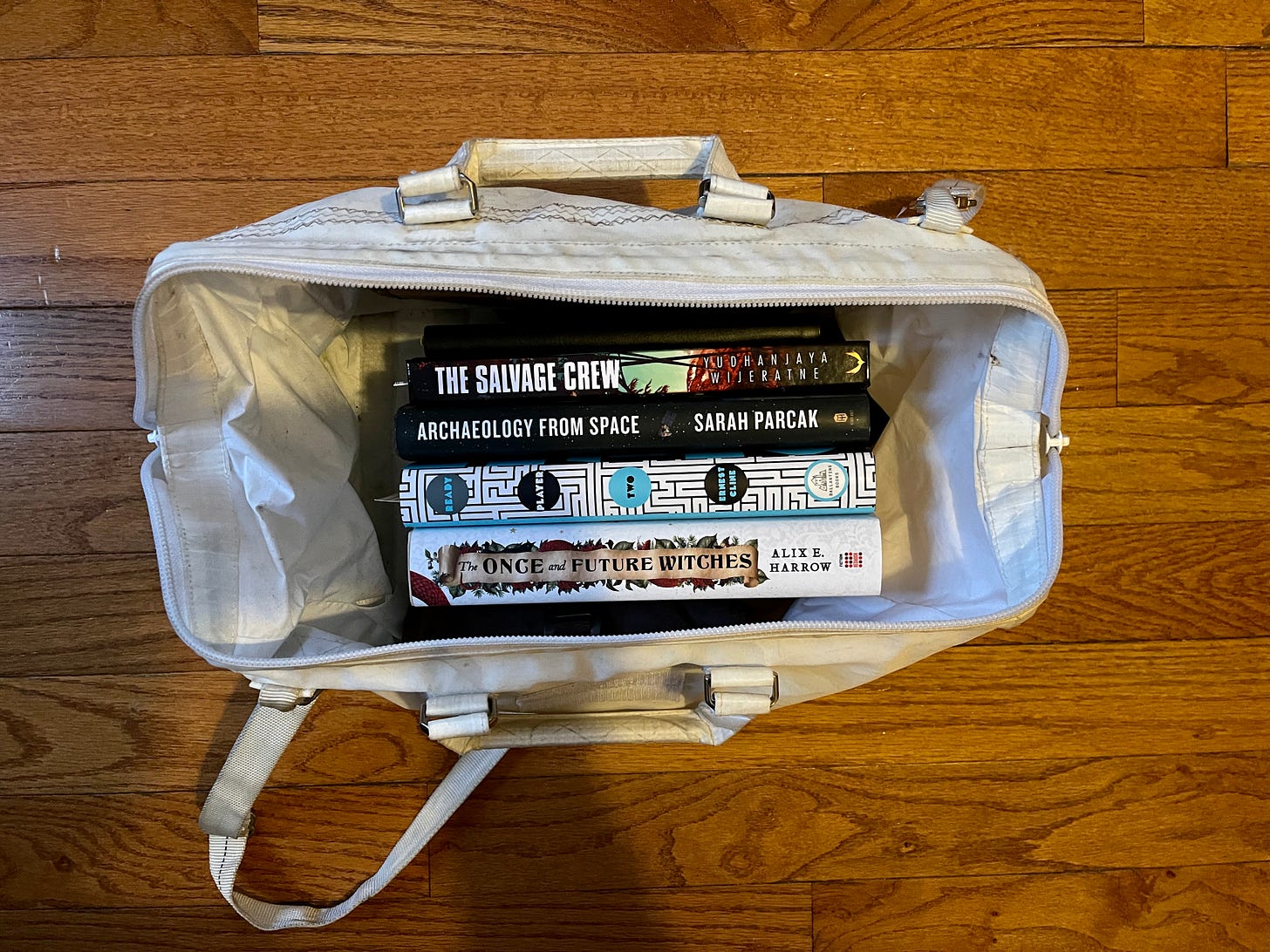
I’m going on a short trip this weekend to see family (we’re taking precautions), and as such, I’m bringing along a small library of books (a small subset of my currently-reading list) to dig into while we’re on the road and back.
On the list:
- The Salvage Crew by Yudhanjaya Wijeratne: a fun space opera that I’m enjoying the hell out of.
- Archeology from Space by Sarah Parcak. I’ve had this on my to-read list for a while, and my wife prefers nonfiction audiobooks.
- Ready Player Two by Ernie Cline. … yeah.
- The Once and Future Witches by Alix E. Harrow. We’ve been listening / reading to this one while we’ve driven around, and I’m really enjoying it.
On the immediate to-read list as well is Kim Stanley Robinson’s The Ministry for the Future, as well as Rebecca Roanhorse’s Black Sun. We'll see how many I can get through before year’s end.
Further Reading
- Bookshop isn’t a silver bullet. I’ve written a bit about Bookshop in recent months, and the storefront just launched in England not too long ago. The reception hasn’t been all that great, and New Statesman has an interesting take: booksellers are wary because of how much they earn from the store — quite a bit less than if customers were to buy from them directly. Jared Shurin has his own take, which is essentially mirrors some of my complaints: the store isn’t designed for customers, but for affiliates.
- Burn-In: the show. This is some exciting news: CBS is developing a project based on P.W. Singer and August Cole’s book Burn-In, which should make for an excellent series. Here’s my review of the book.
- Digital Birding. I’ve gotten more interested in birds this summer, and Outside has a great feature at how one app has been influential: eBird.
- Director discontent. Dune director Denis Villeneuve isn’t happy about HBO Max’s shift to streaming.
- Not a reskin. My friend and former colleague Kwame Opam has a great interview with Evan Narcisse about his role in making sure that Sony’s new Spider-man game featuring Miles Morales really dug into New York City’s Black and Latino culture.
- Quarter century of Catan. Over at the AV Club, Samantha Nelson looks back at why Settlers of Catan has been such a hit.
- Ready Player No. My friend and former editor Laura Hudson reviewed Ready Player Two for Slate. It’s a good look at the book.
- Substack Reader. There have been a *lot* of newsletters popping up this year. Substack just introduced an RSS reader for you to find all of your subscriptions in one place. I’m finding it to be really useful to catch up all at once, and it’ll show you when someone publishes a locked post, something that I’m not 100% aware of if I’m a casual subscriber.
That’s all for today. Stay safe, and let me know what you’ve been reading.
Andrew